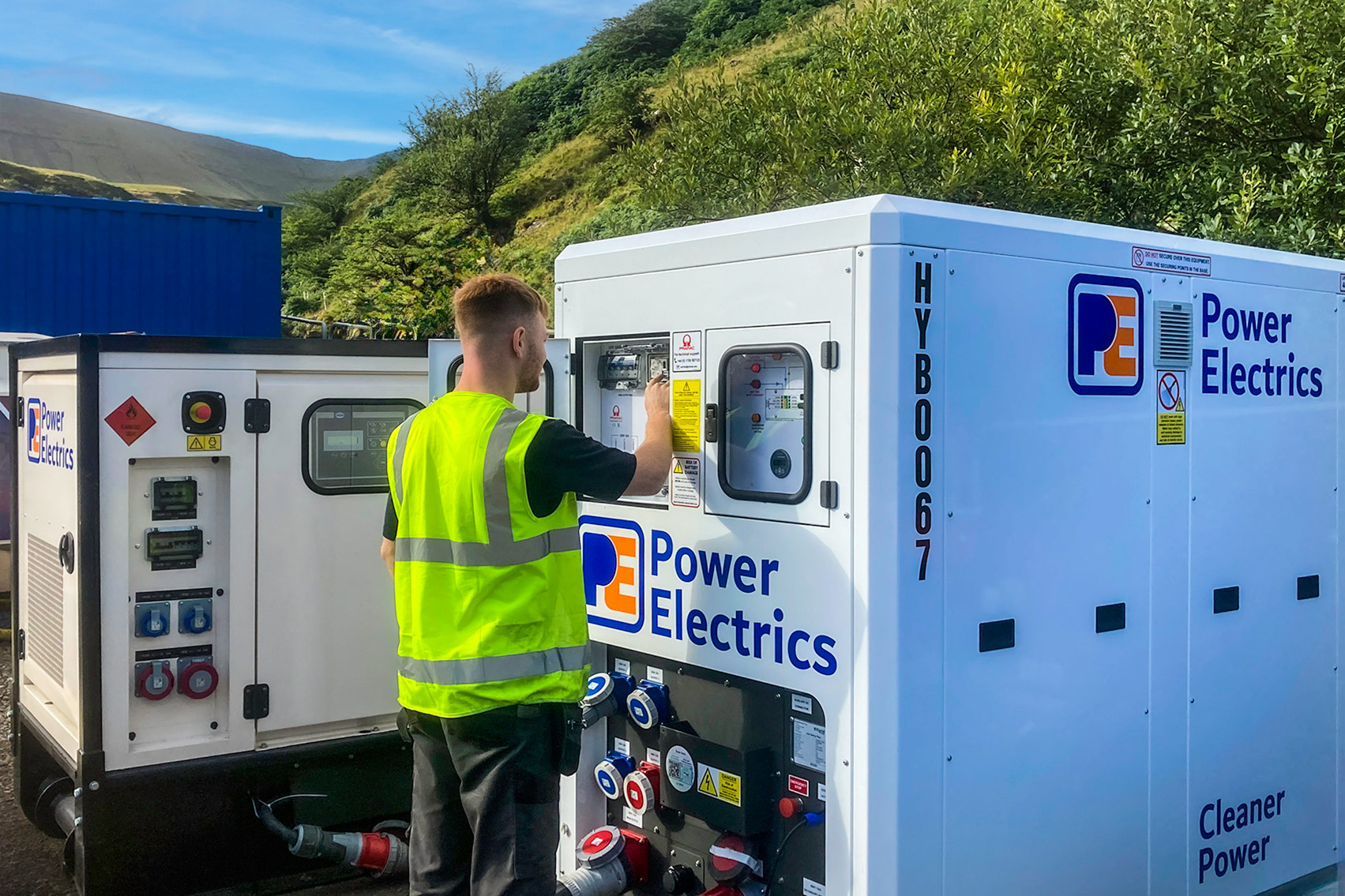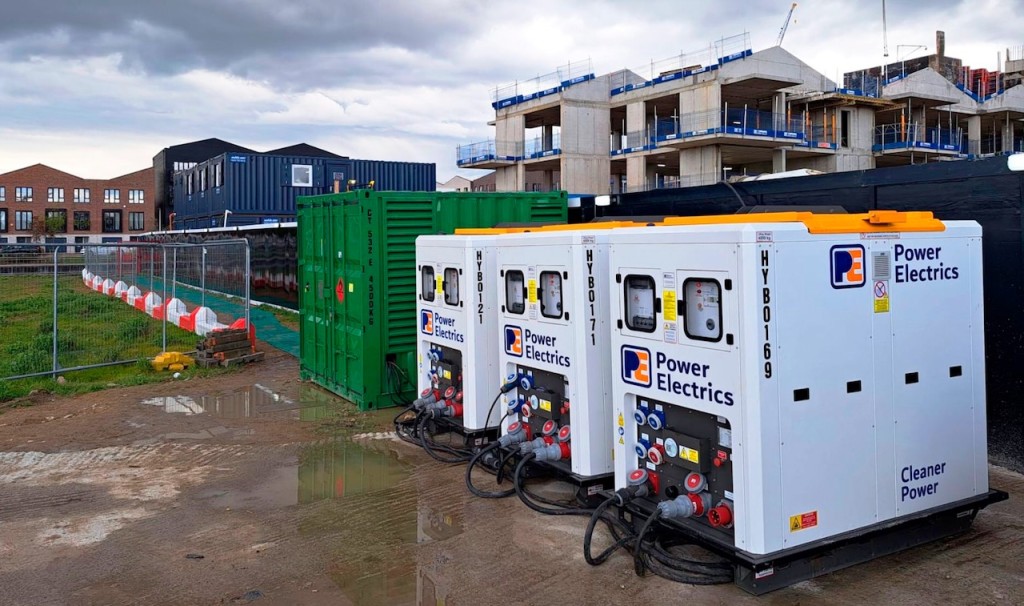Battery Energy Storage (BES) units, also known Battery Energy Storage Systems (BESS) as hybrid generator systems, hybrid battery units, or simply hybrids, are becoming an increasingly popular way to reduce the environmental and economic impact of diesel generators. These systems offer a forward-thinking approach to power generation by integrating battery storage with traditional diesel generators, allowing businesses to achieve greater efficiency and reduce carbon emissions. As industries strive to meet more stringent environmental regulations and work toward net-zero targets, the adoption of hybrid power solutions is gaining momentum across multiple sectors, including construction, manufacturing, healthcare, and infrastructure.
In an era where sustainability is a top priority for many businesses, BES units provide a practical way to reduce the reliance on diesel fuel without sacrificing reliability. These systems are particularly effective in applications where power demands fluctuate, as they can store excess energy and supply it during periods of high demand or when the generator is idle. This significantly reduces the need for constant diesel generator use, lowering both fuel consumption and emissions.
The rising costs of fuel in recent years have further highlighted the importance of finding more efficient power solutions. Diesel fuel, while reliable, has become increasingly expensive, putting pressure on project managers to seek alternatives that offer better value. BES units not only help save fuel but also extend the lifespan of diesel generators by reducing the strain placed on them during periods of low load. This results in fewer maintenance requirements and lower overall operating costs, making them a financially savvy choice in addition to their environmental benefits.
Furthermore, hybrid systems offer greater flexibility and adaptability in temporary power scenarios. Whether you’re managing a construction site, a major event, or maintaining critical infrastructure, BES units can seamlessly integrate into existing generator setups, providing a consistent power supply while reducing environmental impact. Their ability to optimise load management and peak shaving makes them ideal for projects where power demands vary significantly throughout the day, such as in agriculture, utilities, and healthcare sectors.
In this blog, we’ll dive deeper into how BES units work, the technologies that drive them, and explore the specific benefits they offer for different industries. From fuel savings and emissions reduction to enhancing the resilience of your power setup, BES units are proving to be a critical tool in meeting both operational and sustainability goals. Whether you’re looking to lower your carbon footprint or cut fuel costs, hybrid power systems offer a solution that aligns with the future of energy generation.

What are Battery Energy Storage Units?
Battery Energy Storage (BES) units are advanced battery systems designed to store energy for future use, much like the batteries you might use in everyday household devices. However, on a much larger scale, BES units are engineered to work with industrial power solutions, especially in environments where consistent energy supply is critical. These units play a key role in hybrid generator setups, capturing and storing excess energy produced by primary power sources such as diesel generators. This stored energy can be deployed later when demand spikes or when the primary generator is inactive, for instance, during low-demand periods, at night, or when additional power is required during peak load times.
BES units are particularly valuable in environments where power demands fluctuate, such as construction sites, remote facilities, or large-scale events. For instance, during periods of lower energy demand, the BES unit can store excess energy rather than wasting it. When power demand increases, such as during peak hours or in emergencies, the stored energy can be tapped to supplement the diesel generator or, in some cases, completely replace the need for generator use for a period of time. This reduces the need for generators to run continuously, which not only saves fuel but also cuts down on harmful emissions.
Additionally, BES units offer an efficient way to manage power during overnight operations when a diesel generator may not be necessary. In scenarios where noise restrictions or environmental regulations prevent the constant operation of a generator, BES units provide a quiet, emissions-free alternative. This is particularly beneficial in urban areas or sensitive environments, such as hospitals, where maintaining a quiet, low-impact energy supply is crucial.
The flexibility of BES units also allows businesses to optimise their power generation strategies. By integrating these units into existing systems, industries such as construction, healthcare, utilities, and infrastructure can create hybrid energy solutions that balance immediate power needs with long-term sustainability goals. With the rising demand for more eco-friendly energy solutions, BES units are proving to be a cost-effective and reliable answer to modern power challenges.

How do BES Units work?
The working principle behind BES units, or BESS, is straightforward but highly effective. When a diesel generator or another energy source produces electricity, a portion of that energy is converted into electrical energy and stored in the BES unit. The stored energy can then be programmed to release when needed, providing a seamless and reliable power supply without relying entirely on fuel-driven generators. This not only reduces the wear and tear on diesel generators but also minimises fuel consumption, lowering operational costs and contributing to a more sustainable power solution. BES units typically contain a battery pack, an inverter, and a control system.
- The battery pack comprises individual battery cells (of various chemistry make ups) that are connected in a series to increase the overall voltage and capacity of the unit.
- The inverter is responsible for converting the direct current (DC) energy stored in the battery into alternating current (AC) energy, which can be used to power appliances and devices.
- The control system is responsible for managing the charging and discharging of the battery and monitoring its performance.
Benefits of Battery Energy Storage Units
- Increasing generator efficiency: By storing excess energy generated, BES units can reduce the need for diesel generators to continuously run during times the load on the generator is low, such as through the night. Known as low loading, a generator running with a smaller power load than it was designed for will operate a lot less efficiently than one at optimal load. Much like your car’s miles per gallon is far higher while driving at an optimal and consistent speed on the motorway versus the fluctuating speed of city driving. The BES unit will provide power at quieter times and tell the generator when to run to recharge it, at a high efficiency.
- Cut Generator Runtime: As mentioned above, a site’s power requirement often fluctuates but rarely stops. A construction site, for example, will have high power requirements in the day with equipment and welfare cabins being well utilised, but at night only CCTV cameras and some lighting is needed. These peaks and troughs can be difficult for a traditional generator to handle, but when coupled with a BES unit, the BES provides power for quiet periods and can assist with peaks in demand. For example: a 100kVA generator paired with one of our 45kVA/90kWh BES units can see an estimated 50% reduction in fuel usage.
- Reduce CO2 and NOx Emissions: By reducing the run time of diesel generators, BES units help to reduce greenhouse gas emissions and harmful pollutants such as Carbon Dioxide (CO2) and Nitrogen Oxides (NOx) produced by the generators.
- Silent Power: Unlike traditional power sources such as diesel generators, Battery Energy Storage (BES) units operate silently, making them an excellent choice for environments where noise pollution is a concern. This makes BES units particularly well-suited for use in residential areas, hospitals, schools, and other noise-sensitive locations, where maintaining a quiet environment is essential. Their silent operation allows for seamless power generation without disturbing nearby residents, patients, or workers, ensuring a continuous and reliable energy supply without the disruptive hum commonly associated with conventional generators. This makes them a more versatile and community-friendly option.
- Power assist: enables short-term peaks in load to be covered by the inverter technology synchronising with the generator meaning that generator sizes can be reduced.
BES units offer a wide range of benefits over traditional temporary power solutions, making them an increasingly popular choice for industries looking to improve efficiency and sustainability. One of the most significant advantages is their ability to drastically reduce diesel fuel consumption, which not only lowers fuel management costs but also minimises the environmental impact of your operations. By pairing BES units with diesel generators, you can optimise fuel usage by using stored energy during periods of low demand or peak times, reducing the need for continuous generator operation and cutting down on harmful emissions.
In addition to being more environmentally friendly, BES units provide a more reliable and uninterrupted power supply. During peak demand periods or when additional power is required, these units seamlessly supply stored energy to keep your operations running smoothly without interruption. Their silent operation makes them particularly ideal for noise-sensitive environments, such as residential areas, hospitals, or event spaces, where maintaining a quiet atmosphere is crucial.
By integrating BES units into your power setup, you’re not only choosing a more sustainable and cost-effective solution but also enhancing the overall resilience and efficiency of your project. Whether for construction, healthcare, or large-scale events, BES units are a forward-thinking choice for reducing fuel management costs and improving environmental performance.
You can read about Power Electrics’ investments into BES units here or send us an enquiry at the link below.









